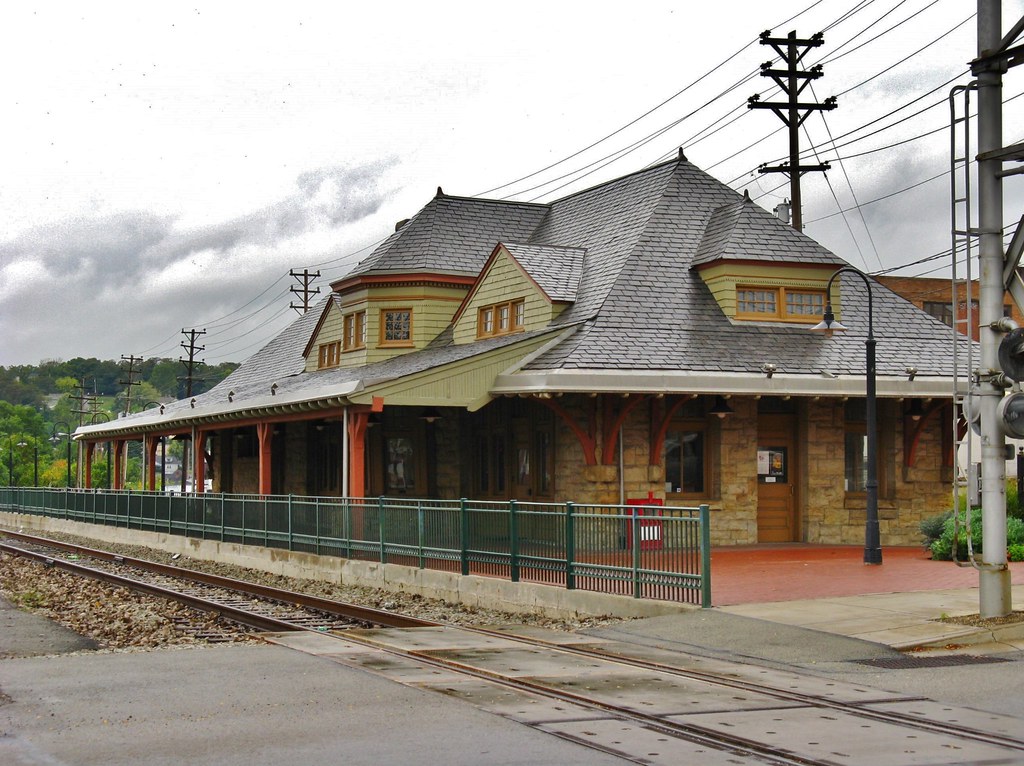Sometimes a game isn’t just a game, like when it involves the championship of a beloved sport. My recent “Whole Other Country” observations created more spinoff story opportunities than I would have imagined. For instance, it led me to Buffalo, Texas, a town named for a large bovine that still roamed the prairies when a railroad came through in 1872. Those creatures were actually bison although I promised to ignore that issue and let it slide. Thus the settlement in Texas became Buffalo (map).
Buffalo, Texas
What I didn’t mention was that Buffalo also changed its name temporarily in the late 20th Century not once, not twice, but three times due to championship games in two different sports. It reminded me a little of the time that Ismay, Montana became Joe, Montana for awhile in honor of an American Football quarterback. I noted the situation simply to stress that people took this stuff seriously. Sports fandom(¹) can lead to odd behaviors in its extreme forms.

Twelve Mile Circle felt compelled to examine the situation from an historical perspective, although not going back as far as usual this time. This story began in January 1993 with Super Bowl XXVII, the American Football championship between the Dallas Cowboys and the Buffalo Bills. There was a problem. Buffalo, Texas, barely a hundred miles south of Dallas and certainly within the strong pull of Cowboys country, shared a name with its Super Bowl rival. The Bills even featured a buffalo (bison, whatever) on their helmets as a visual connection to their home.
The name of the city in New York, by the way, had a disputed etymology although I don’t want to get into that today. There were never grazing herds of wild bovine near the eastern edge of Lake Erie in post-Columbian times. However let’s not confuse the story any further. Rabid Cowboys fans from Buffalo, TX couldn’t stand to share a name with their opponents vying for a Super Bowl title.
Blue Star and Green Star
Buffalo, the one in Texas, transformed temporarily into Blue Star to reflect a key feature of the Cowboys logo. The Cowboys beat the Bills 52–17 in Super Bowl XXVII. Consequently, I guess the town felt emboldened or compelled to do it again the very next year when the Cowboys met the Bills in Super Bowl XXVIII for a rematch. Buffalo, TX switched to Blue Star for a couple of weeks and once again Dallas claimed the Super Bowl championship, this time 30–13.
Dallas and Buffalo haven’t met in a Super Bowl since then. However, the municipal sports rivalry continued. The Dallas Stars opposed the Buffalo Sabres in the National Hockey League’s Stanley Cup championship series in 1999. Texas doesn’t come to mind immediately when I think of a stereotypical place where ice hockey might dominate the local sports culture. Am I right, Canadian 12MC audience?
Buffalo, TX probably wouldn’t have blinked had Dallas fought for the Stanley Cup before those two Super Bowl titles. Dallas didn’t even have an NHL major league hockey team until 1993. Nonetheless, Buffalo, TX renamed itself Green Star this time (Texas does love its Lone Star, regardless of color), and the Dallas Stars won the Stanley Cup series four games to two.
They Weren’t the Only Ones

I stumbled upon a similar story as I continued to research the Buffalo situation. This one happened a little more recently in Super Bowl XL, February 2006. The Pittsburgh Steelers went up against the Seattle (Washington) Seahawks. This created a conundrum for the town of Washington, Pennsylvania (map). As described by the Seattle Times [link no longer works],
“WASHINGTON, Pa. — Just to make sure there’s no confusion about which team they are pulling for in Super Bowl XL, the mayor and council voted unanimously to change this city’s name. Welcome to Steeler, Pa. The name change for the city of about 15,000 people south of Pittsburgh will last through Super Bowl Sunday.”
The result? The Steelers won 21-10. Apparently towns should change their names temporarily if they wish to guarantee a home team victory (ignoring the issue of small sample size). Genius!
Promising Opportunities
Why haven’t more places tried this? Well, for the Super Bowl at least, there were surprisingly few opportunities to do that. I went back through the list and didn’t find much. These would have been some of the more promising opportunities:
- XLVII (2013): Baltimore (Maryland) Ravens vs. San Francisco (California) 49ers. I found California, Maryland (map) although it fell within territory more appropriate to the Washington, DC football team that must not be named.
- XXXVII (2003): Tampa Bay (Florida) Buccaneers vs. Oakland Raiders. There’s an Oakland, FL outside of Orlando about a hundred miles from Tampa (map).
- XXXV (2001): Baltimore (Maryland, again) Ravens vs. New York Giants. A rare double opportunity! I found a New Baltimore, NY south of Albany and a Maryland, NY west of Albany (map).
- XXX (1996) and XIII (1979): Pittsburgh Steelers vs. Dallas Cowboys. The Pittsburg (no h), Texas that I also mentioned in “Whole Other Country” (map) versus Dallas, Pennsylvania (map).
I’m sure similar analyses could be conducted for other major sports. I did take a quick glance at the (“other” or “real” depending on one’s point of view) football, the Fédération Internationale de Football Association (FIFA) World Cup™. The problem here involved the multitude of languages. Nonetheless, examples might include Uruguay vs. Argentina (1930), with a border area of Argentina called Uruguay (map); or England vs. West Germany (1966), with a small hamlet labelled as England (at least according to Google Maps) in what was then part of West Germany.
Then I got bored with the whole concept and gave up.
12MC Loves Footnotes!
(¹) Portmanteau alert! Fandom = FANatic + kingDOM; a subculture of particularly devoted followers.

Leave a Reply